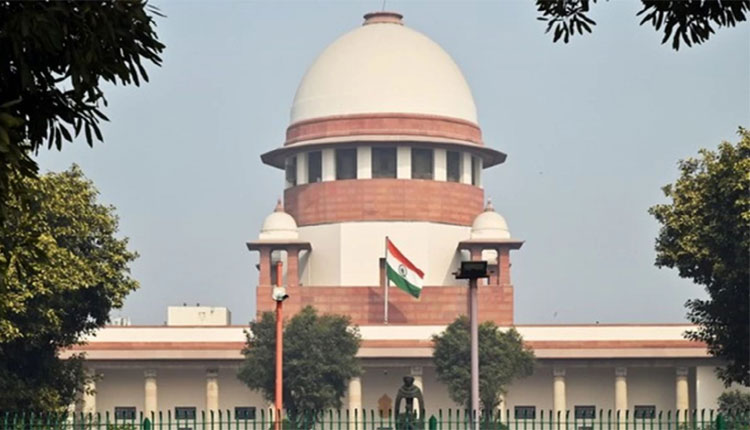New Delhi: The Supreme Court has postponed the hearing on a petition challenging the Allahabad High Court’s decision to declare the Uttar Pradesh Madrasa Education Board Act of 2004 as unconstitutional. The High Court’s ruling, which struck down the Act on the grounds of violating the principle of secularism, had been contested, and the Supreme Court was set to hear the matter. The hearing is now scheduled for September 11.
The petition, filed by Anjum Qadri, contests the High Court’s authority to invalidate the Madrasa Education Board. According to Qadri’s petition, the High Court’s decision oversteps its jurisdiction, arguing that the board’s existence should not have been deemed unconstitutional.
Earlier, the Lucknow bench of the Allahabad High Court declared the Uttar Pradesh Madrasa Education Board Act of 2004 unconstitutional, citing that it infringes upon the secular fabric of the nation. The court had also directed the Uttar Pradesh government to integrate students currently enrolled in madrasas into the state’s basic education system, ensuring that their education continues seamlessly under the new arrangement.
Following the High Court’s decision, Dr. Iftekhar Ahmed Javed, Chairman of the Uttar Pradesh Madrasa Education Board, expressed his surprise and concern. He indicated that the board would review the court’s order and subsequently provide recommendations to the state government.
In response to the ruling, the Uttar Pradesh government established a Special Investigation Team (SIT) in October 2023 to investigate the functioning of madrasas across the state. The Supreme Court’s forthcoming hearing on September 11 will be crucial in determining the future of the Madrasa Education Board and the students it serves.
The initial ruling by the Allahabad High Court was delivered by a bench comprising Justices Vivek Chaudhary and Subhash Vidyarthi, setting the stage for a significant legal battle over the constitutionality of religious education boards within a secular framework.



Comments are closed.